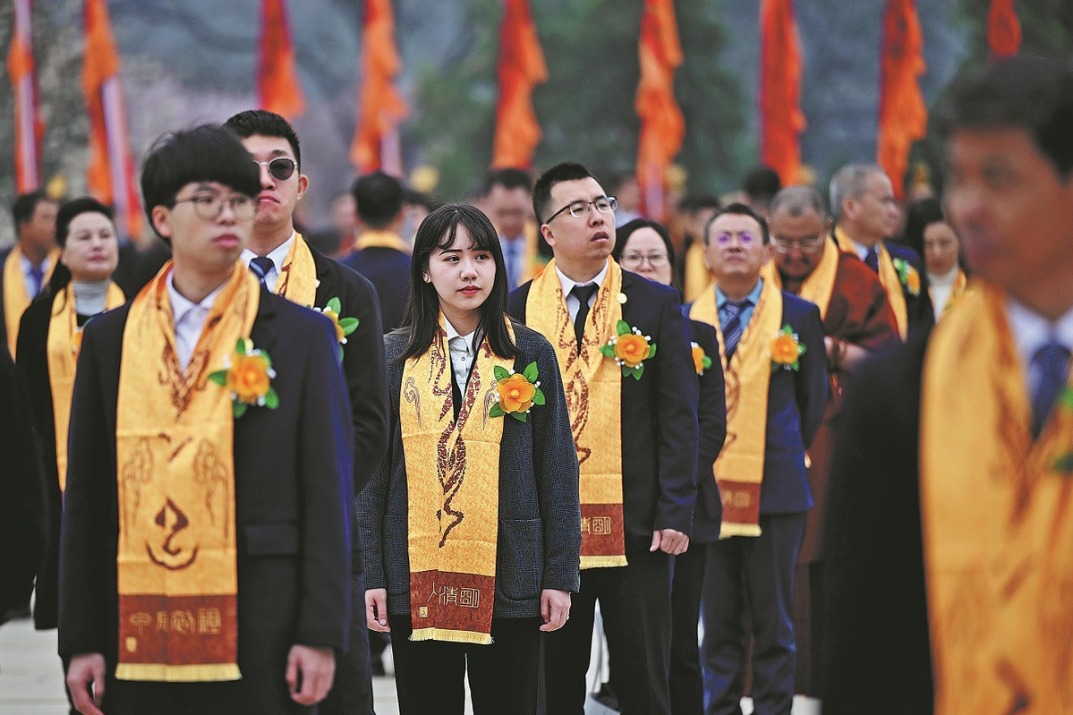Peace builders play role in Sino-Japanese friendship
China Daily | Updated: 2019-07-09 08:47

TIANJIN/BEIJING - Even at the age of 100, Yang Enze, one of the founders of China's optical fiber cable communications system, has not stopped researching and teaching as a professor at Tianjin University.
Besides his pioneering achievements as the chief engineer of China's first optical communications project for practical use in the 1970s, Yang is also known as a survivor and witness of the War of Resistance Against Japanese Aggression (1931-45).
"I was admitted to Wuhan University in 1937, the year when Japanese troops attacked the Lugou Bridge, also known as the Marco Polo Bridge, on the outskirts of Beijing on July 7," the centenarian said, recalling the start of his academic study.
The incident marked the beginning of Japan's full-scale war against China during World War II and triggered China's resistance against the invasion.
Ahead of the 82nd anniversary of the incident that falls on Sunday, Yang said because of the war, his university in central China's Hubei province was relocated to the southwestern province of Sichuan to avoid enemy forces.
"Even in Sichuan, there were a lot of Japanese bombings, but none of the students missed any of the classes as long as there was no air-raid siren," he recalled.
"I have always kept in mind late Chairman Mao Zedong's words that it was Japanese militarists that were to blame for the war, not Japanese civilians," Yang said, noting that he still keeps in touch with many Japanese scholars.
He established the first optical communications laboratory in Tianjin in 1985, when he was invited to teach at Tianjin University. In Yang's career, he has made friends with several leading experts from Japan and remained friends with some of them.
Naomi Morita is a Japanese language teacher at Nankai University who also works as a consultant to the school's research institute of Zhou Enlai-Daisaku Ikeda.
"After becoming involved in the research of the friendship between the late Chinese premier and the Japanese philosopher, I wanted to search for the core factors that helped consolidate the friendship between them," Morita said.
She came to Nankai to pursue a master's degree in Modern Chinese and Chinese Literature in 2010 and has been there ever since. When she first arrived, she had trouble learning Chinese phonics. Now she can read and speak Chinese fluently, write beautiful Chinese characters and study ancient Chinese literature independently.
As a teacher, she feels frustrated that most of her Chinese students are more likely to be attracted by Japanese animation and games rather than Japanese literature. According to the school's statistics, nearly half the undergraduates in the 2019 class of Japanese majors chose to work in Japanese-funded enterprises or Japanese-related enterprises after graduation.
Morita said Japanese tourists who visit China are more likely to choose destinations like Beijing, Shanghai and Guangzhou.
According to a report released by the China Tourism Academy, China received 2.69 million Japanese visitors in 2018, making Japan China's fourth largest source of foreign tourists. In the same year, Chinese made 9.06 million direct visits to Japan.
The academy released the report at the 2019 China-Japan Tourism Forum Dalian held on May 26, which focused on promoting win-win cooperation on cultural exchanges and tourism between the two countries.
China and Japan agreed to push bilateral relations to promote peace, friendship and cooperation at the Group of 20 summit, which featured the world's major economies in Osaka, Japan, in June.
"We keep the wartime memory not because we bear the hatred, but because we want the younger generations to cherish what they own today and move toward a better future," said 70-year-old Zhen Dong, who on Friday visited an exhibition on Beijing's past held at the Beijing Municipal Archives.
Zhao Hongwei, a professor with Tokyo-based Hosei University, said when it comes to bilateral relations between China and Japan, it is very important to promote the free trade agreement and expand the markets of both sides.
Xinhua























